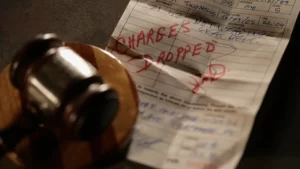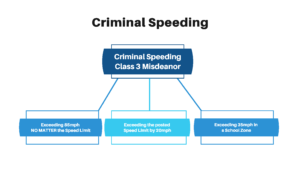What is Criminal Contempt?
Criminal contempt is a crime that involves disobeying or disrespecting the court or its orders. It’s an offense against the dignity and authority of the court and the justice system. Criminal contempt can occur inside or outside the courtroom. Unlike civil contempt, the purpose of criminal contempt isn’t to force compliance but to punish the contemnor and uphold the administration of justice.
Elements of Criminal Contempt
For a person to be found guilty of criminal contempt, the court must find that:
The Person Willfully Disobeyed or Disregarded a Court Order
The contemnor must have actual knowledge of the court order and intentionally violate its terms. There must be proof beyond a reasonable doubt that the person deliberately failed to comply.
The Conduct Obstructed or Interrupted Court Proceedings
The misbehavior must disturb the orderly conduct of business in the courtroom. Examples are refusing to testify, fleeing the courtroom to avoid prosecution, or filing false documents with the court.
The Behavior Showed Disrespect for the Court’s Authority
Actions or words that ridicule, insult, interrupt, or challenge the court demonstrate contempt. Things like refusing to answer questions, lying under oath, or engaging in violence in the courtroom constitute criminal contempt.
Types of Criminal Contempt
Criminal contempt is categorized into two types – direct and indirect:
Direct Criminal Contempt
H2. Direct contempt happens in the court’s presence. The judge witnesses the contemptuous conduct and may act summarily to preserve order in the court. For example, a witness shouts at the judge or a defendant punches an officer.
Indirect Criminal Contempt
Indirect contempt occurs outside the judge’s immediate knowledge. It involves disobeying court orders or instructions. For instance, violating an injunction, continuing with a prohibited activity, or harassing participants after a court order.
Punishment for Criminal Contempt
The court has wide discretion in sentencing for criminal contempt. It may include fines, restitution, probation, imprisonment, or a combination. The punishment aims to preserve the court’s authority and deter future acts of contempt.
Fines
H3. Courts often impose fines as punishment for contempt. There’s typically no set limit on fines – some fines have exceeded $1 million. Nonpayment may result in jail time.
Imprisonment
Imprisonment is also a common penalty for contempt. The length of jail time varies widely. In federal court, it’s usually under 6 months. Some states cap it at 30 days unless the defendant gets a jury trial.
Probation
Instead of jail time, courts may sentence contemnors to probation. They have to adhere to conditions like avoiding further violations or maintaining employment.
Constitutional Rights in Contempt Cases
Contemnors possess some constitutional rights, like:
Right to Notice
H3. In cases of indirect contempt, defendants have a right to receive notice of the charges against them. The notice must state when and where the contempt occurred.
Right to a Hearing
Courts must give defendants a hearing or trial before imposing contempt penalties. At the hearing, contemnors may testify, present evidence, and call witnesses.
Right to Counsel
Those facing criminal contempt charges punishable by imprisonment of over six months have a right to counsel. They’re entitled to have an attorney represent them if they can’t afford one.
Right Against Self-Incrimination
The Fifth Amendment privilege against self-incrimination applies to contempt proceedings. Defendants can’t be compelled to make incriminating statements.
Right to a Jury Trial
For serious criminal contempt sanctions, defendants have a right to a jury trial. Some states require it for any imprisonment over 30 days.
When Criminal Contempt May Apply
Some examples of acts that may warrant criminal contempt include:
- Violating a restraining order
- Fleeing court to avoid prosecution
- Refusing to testify or produce documents
- Harassing or threatening judges, jurors, witnesses, or court officers
- Repeatedly interrupting court proceedings
- Making false or misleading statements under oath
- Refusing to answer questions during testimony
- Publishing information that violates a court’s gag order
- Engaging in violence in the courtroom
The act usually involves intentional disregard or disobedience of court authority, orders, rules, or decorum.
Unique Aspects of Criminal Contempt
Criminal contempt has some unique aspects that distinguish it from other crimes:
No Statute of Limitations
H3. There’s no time limit for prosecuting criminal contempt. Charges may be filed at any time, even years after the violation occurred.
Unique Procedural Rules
Special rules govern contempt proceedings. For instance, judges can summarily punish direct contempt immediately after it happens.
High Burden of Proof
Courts hold contempt allegations to a very strict standard. Guilt must be proven beyond a reasonable doubt, same as other crimes.
Can’t Be Pardoned
The president’s pardon power doesn’t extend to criminal contempt. Contemnors must serve court-imposed sentences.
Prosecuted by the Court
Federal judges appoint prosecutors to bring contempt charges. This helps maintain the court’s authority and impartiality.
When Courts Use Criminal Contempt Sparingly
Despite having broad authority, most courts use their contempt powers judiciously. They reserve criminal contempt for conduct that clearly impedes court functions or insults judicial authority.
Repeated Violations
H3. Courts will typically give warning that an act risks contempt before imposing penalties. Repeated violations after warnings may warrant sanctions.
Intentional Misconduct
Judges frown upon intentional misbehavior more than accidental incidents. Criminal contempt requires willful defiance or disrespect toward the court.
Disruptive Impact on Proceedings
Behavior that significantly disrupts court proceedings or functions is more likely to trigger contempt. Minor incidents may result in warnings rather than sanctions.
Violations That Undermine Authority
Courts will punish serious signs of disrespect for their authority. But brief, mild outbursts of emotion may not rise to the level of contempt.
Defenses to Criminal Contempt
Though difficult, some possible defenses to criminal contempt charges include:
No Willful Intent to Violate Order
The accused must know of the court order, so unintentional violations may provide a defense. But lack of willful intent is hard to prove.
Order Was Unclear or Ambiguous
If the court’s order was vague or confusing, violating it may not sustain a contempt finding. However, most orders are clear enough to uphold sanctions.
Unable to Comply With Order
Physical inability to obey a court order could negate intent. But claims of financial inability often fail.
Violation Was Justified
Violating an order to prevent grave harm may be justified. But the harm prevented must be substantial and imminent.
Misguided Reliance on Counsel
Acting on a lawyer’s erroneous advice isn’t a defense by itself. But it may persuade the court to grant leniency.
These defenses place a heavy burden on the accused contemnor to justify the noncompliance.
Comparison to Civil Contempt
Civil contempt is meant to compel compliance with court orders, while criminal contempt punishes disobedience. Key differences include:
Purpose
H3. Civil contempt coerces compliance; criminal contempt punishes the contemptuous act. Fines imposed for civil contempt end after compliance.
Burden of Proof
The standard for criminal contempt is “beyond a reasonable doubt.” For civil contempt, it’s usually “clear and convincing evidence.”
Sanctions
Jail time and fines for criminal contempt are unconditional punishment. Civil contempt sanctions aim to compel compliance.
Procedural Rights
Due to the punitive nature of criminal contempt, defendants have more rights like jury trials. Civil contemnors have fewer protections.
Conclusion
Criminal contempt preserves respect for the justice system by sanctioning actions that defy court authority. It involves intentionally violating court orders or engaging in conduct that obstructs proceedings. Possible penalties include fines, jail time, probation, and restitution. Courts reserve criminal contempt for the most egregious affronts to their authority that clearly hamper court functions. Though prosecuted by the courts themselves, contempt defendants have important constitutional rights.
FAQs
What is the maximum jail sentence for contempt of court?
The maximum jail sentence varies widely between jurisdictions. In federal court, it’s usually under 6 months unless the defendant opted for a jury trial, in which case it can be longer. Some states cap it around 30 days unless a jury trial is held.
Is contempt of court a felony or misdemeanor?
Contempt may be a felony or misdemeanor depending on the act and the punishment imposed. Felony contempt often involves jail time over 1 year. Misdemeanor contempt typically brings shorter jail sentences under 1 year.
Can you get arrested for contempt of court?
Yes, contempt of court may result in arrest and detention. Courts have broad authority to maintain order and compliance with their directives. Ignoring a subpoena or court order could lead to a warrant for the defendant’s arrest.
Who prosecutes contempt of court cases?
Federal judges appoint prosecutors to bring contempt cases in federal court. This maintains the court’s authority and impartiality in the proceedings. State courts may use local prosecutors or equivalent officials.
Does contempt of court go on your criminal record?
Yes, criminal contempt constitutes a misdemeanor or felony conviction that goes on your criminal record. Some sanctions like fines or probation may not be included in a defendant’s permanent record.







